*TRIGGER WARNING*: This article discusses themes of domestic violence and abuse that may be distressing for some readers.
Just what is domestic violence?
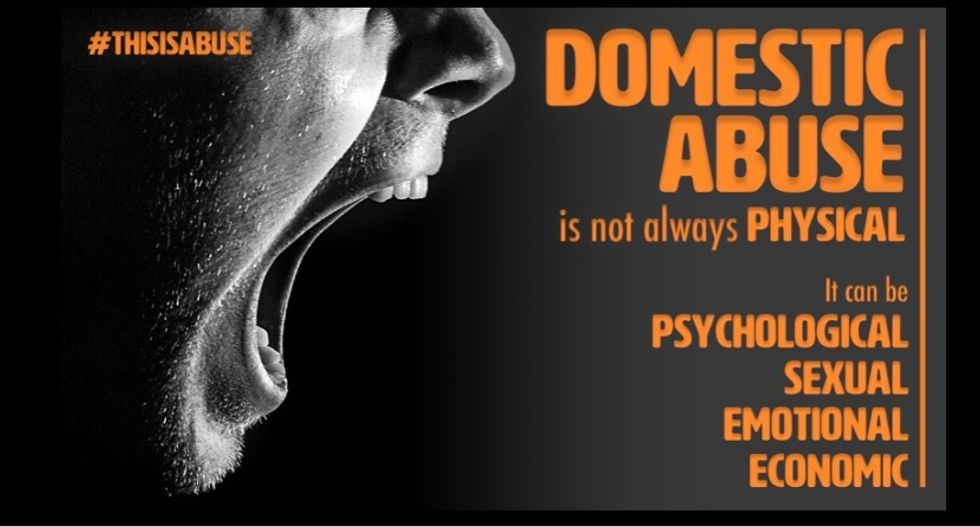
gov.uk
According to the National Coalition Against Domestic Violence (NCADV), domestic violence "is the willful intimidation, physical assault, battery, sexual assault, and/or other abusive behavior as part of a systematic pattern of power and control perpetrated by one intimate partner against another". Ok, so let's break down this definition. Willful intimidation means that the perpetrator knowingly and actively seeks to make the victim feel vulnerable, fearful, or distressed. A systematic pattern means that the perpetrator's patterns of abusive behavior reflect that person's intentional efforts to dominate and intimidate the victim. Intimate partner refers to any person, regardless of gender or martial status, in some sort of relationship with another person, living together. The term intimate partner is becoming more prevalent, as domestic has a connotation of a married couple. The term "cycle of abuse" may be a term you are familiar with, but it is a bit outdated, as it implies that there are breaks in the pattern of behavior. Even when the perpetrator is seemingly being "nice" to the victim, the victim is still nervous and anxious, as that individual is anticipating when the abusive behavior will strike again. Therefore, the perpetrator is still engaging in behavior that intimidates the victim. Further, as addressed by the National Domestic Violence Hotline, using the term cycle indicates that the victim is somehow at fault, and that the cycle has a specific onset and a set end. Neither of these are true, as victims living in situations of domestic abuse often are fearful even when things are seemingly going "well" and the victim is never to blame for the perpetrator's behavior. As a society, we have a tendency to blame victims, but this does nothing to solve the problem. There is never an excuse for abuse.
Statistics

Adiva Naturals Blog
- Every minute, 20 Americans become the victims of domestic violence
- Every year, there are 10 million victims of domestic violence
- 15% of all crime is cases of intimate partner violence
- 1in 4 women and 1 in 7 men have experienced severe physical violence at the hands of an intimate partner in their lifetime
- 1in 15 children are affected by domestic violence each year
Source: NCADV
Who are the victims?
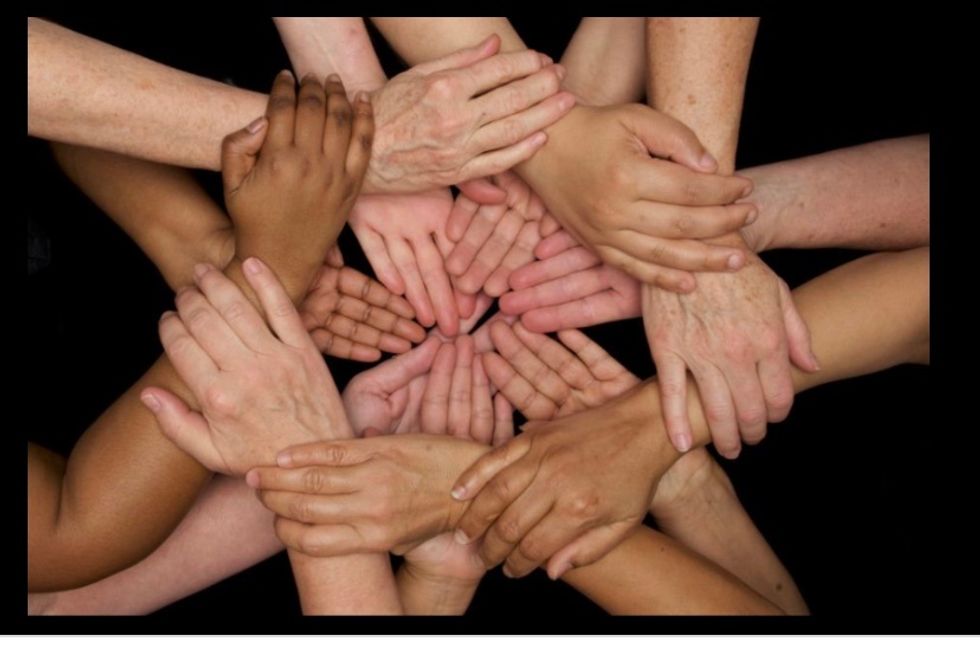
Women Rising Above Abuse
Domestic violence does not discriminate. Victims can be of any gender identity, sexual orientation, age, religion, race, ethnicity, or socioeconomic status. It is important that we are open-minded when a victim discloses his or her experience, as domestic violence takes many forms and impacts a diverse range of victims.
The silent victims
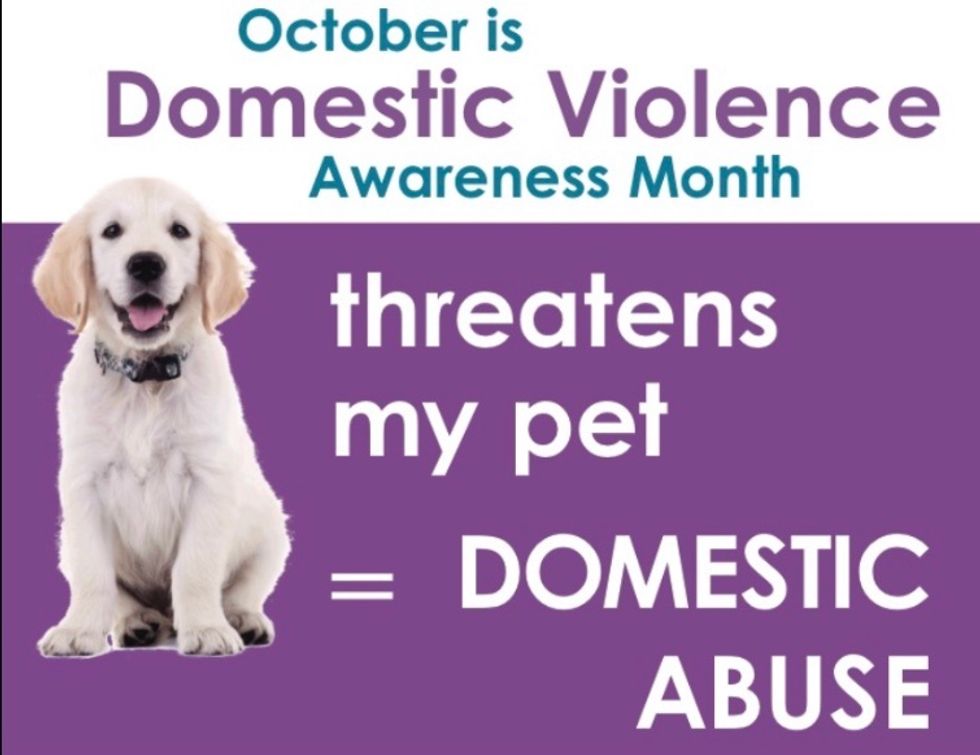
Women and Children's Alliance
Sadly, pets living in homes where domestic violence exists are impacted, as well. 71% of pet-owners who enter domestic violence shelters say their pets were either injured, or had their lives threatened or taken by their abuser. 85% of domestic violence shelters report that it is a common occurrence to have a woman come in whose pet has been abused as well. Animals are helpless and innocent, and are usually unable to adequately defend themselves against a grown human being. Furthermore, witnessing the violence or abuse significantly stresses animals as well, and chronic stress can impact an animal's health, possibly reducing his or her lifespan. There is a need for more domestic violence shelters to welcome pets. While progress is being made in more shelters accepting pets, there is still much work to be done. In fact, women often stay in abusive homes for fear of what would happen to their pet if they left or could not find a safe place to take them.
Source: NCADV
Debunking myths

The Advocate
Myth: Domestic violence only affects married couples.
Fact: Domestic violence affects anyone who is involved in an intimate partner relationship.
Myth: Only women are victims.
Fact: Men also are victimized by domestic violence, at higher rates than you would imagine (see above). Men can be abused by women or by other men. Women are more likely to use a weapon against a man. Men face an additional stigma, as society as a whole still tends to regard domestic violence through a strictly gender-based perspective.
Myth: Only young people experience domestic violence.
Fact: Although young women ages 18-24 (NCADV) are at the highest risk for experiencing domestic violence, older people are victimized as well. In some cases, it is enacted by intimate partners and in others, the abuse is perpetrated by a caretaker. The topic of elder abuse will be covered in a future article.
Myth: Domestic violence doesn't happen in my neighborhood.
Fact: While the statistics show that the risk factors for domestic violence vary widely based on demographics, it is still an issue that affects all communities. Domestic violence may be happening right under your nose and you may not even be aware of it. Often, the victim is afraid of retaliation from the abuser if people become aware of the situation. Remember, domestic violence even impacts celebrities. Famous people such as pop singer Rihanna and actress Charlize Theron have made headlines for sharing their experiences with domestic violence. The late Nicole Brown Simpson endured years of battering and stalking by her husband, whom she later divorced, OJ Simpson. In the 1990s, she was brutally murdered.
Myth: Domestic abuse is always physical and leaves visible marks.
Fact: Interpersonal violence manifests itself in several ways. Abuse is not limited to just physical abuse- it can be emotional, psychological, sexual/reproductive, or economic in nature. An example of emotional abuse is perpetually intimidating, belittling, or insulting the victim to make that person feel bad or his or herself. Psychological abuse may be "gaslighting", where the abuser tries to convince the victim that they are going insane, or they may threaten the victim, but never act upon the threats. Threats, nonetheless, are a powerful weapon used by the abuser that traumatizes the victim. I once heard a true example of a man who killed his wife's pets and told her he could do the same to her. An example of sexual abuse is coercing the victim into sex, or, raping the victim, while an example of reproductive abuse may be intentionally interfering with the victim's contraception or forcing the victim to go through with or denying the victim reproductive health procedures. Economic abuse occurs when the abuser controls the victim's finances so it is harder for the victim to be independent, so the abuser may not permit the victim to become employed, or may take the victim's paychecks away from the victim.
The consequences
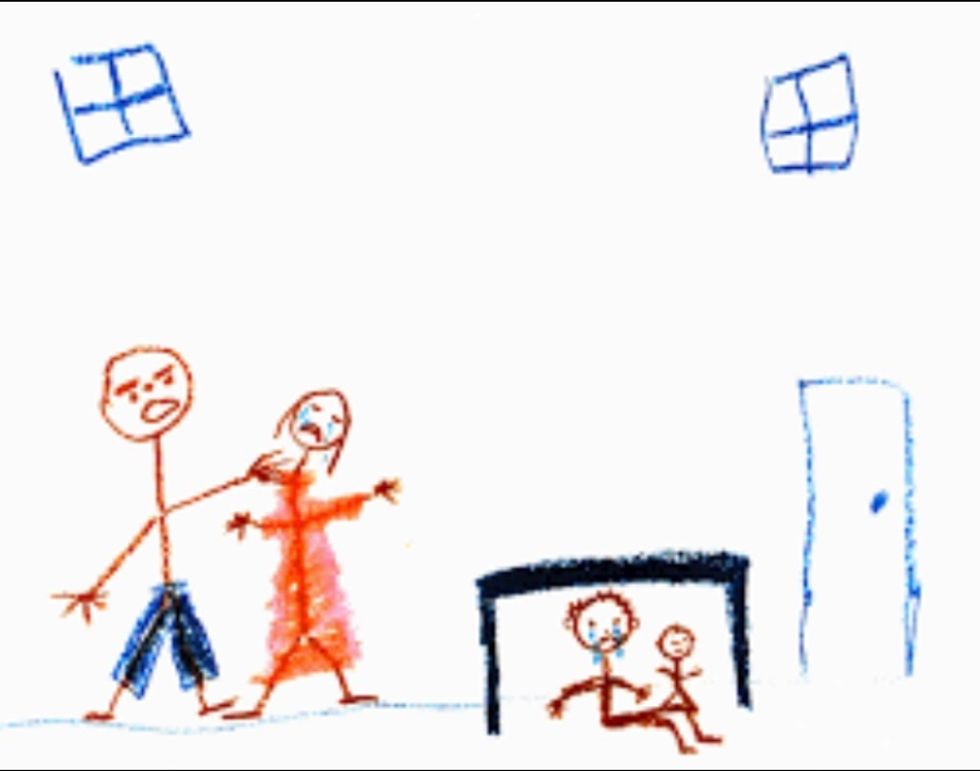
The National Child Traumatic Stress Network
There are so many devastating consequences of domestic violence and abuse. At a minimum, the victim suffers emotionally and psychologically, and in some all-too-often, tragic circumstances, domestic violence culminates in suicide or homicide. Several victims of domestic violence or abuse develop PTSD and may have issues trusting others and forming intimate relationships. Victims may have chronic health or mental health conditions as a result of abuse. Some victims end up financially destitute, as a result of their abuser controlling their finances. In some circumstances, survivors have to leave their past lives behind and start completely fresh somewhere else. This can be extremely stressful. Children who live in abusive homes face numerous issues as well. Children who witness domestic violence are at increased risk for depression, anxiety, and may resort to unhealthy coping mechanisms, such as substance use. Children often feel conflicted between loving the abuser and wanting to protect the victim. Children should never have to feel this way.
How to get help
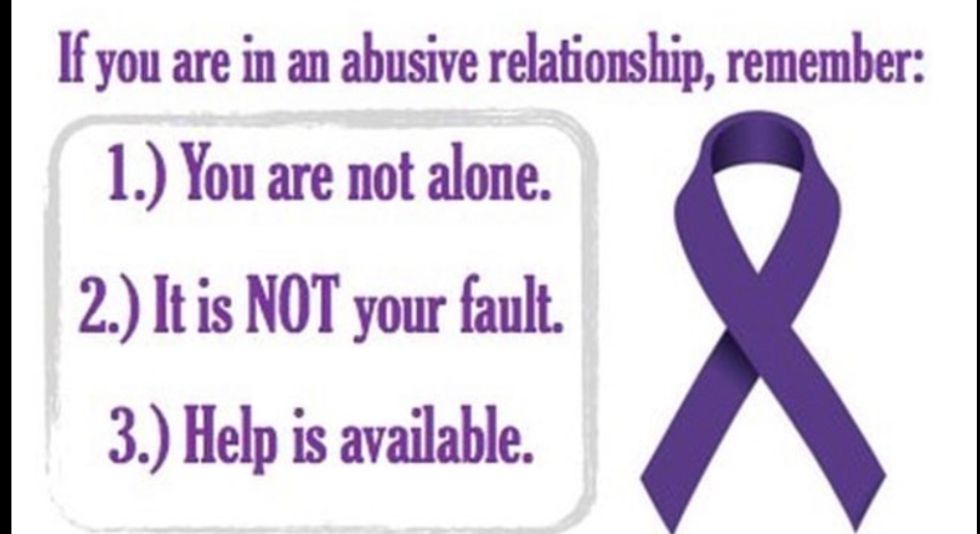
Missouri State Blogs
Domestic Violence Hotline: (1-800) 799-3224
Resources for getting help safely: https://www.thehotline.org/blog/get-help-today/
For a list of pet-friendly animal shelters in your area: https://www.thehotline.org/help/pets-2/
How to help

East Los Angeles Women's Center
If you want to help, start by sharing this article to raise awareness, and promote awareness on social media. Currently, popular hashtags include: #LoveShouldntHurt , #DomesticViolenceAwareness, and #VoicesHavePower . Don't forget to wear purple! You can also help by volunteering with your local domestic violence shelter, participating in community events this month, or making a donation to legitimate charities supporting survivors of domestic violence such as the Joyful Heart Foundation. The National Coalition Against Domestic Violence offers online/remote volunteer opportunities. Keep an open mind and never blame victims. It is also important to never judge why a victim stayed in an abusive relationship. The most dangerous time for a victim is when that victim attempts to leave, and victims have their own reasons for staying. The important thing is to remember that just showing kindness and support to victims can do an enormous amount of good.
For more information:

DomesticShelters.org
https://www.breakthecycle.org/
http://www.joyfulheartfoundation.org/learn/domestic-violence
https://nrcdv.org/dvam/home
- Signs of Domestic Violence ›
- The Honest Truth: About Domestic Violence ›
- The Truth About Domestic Violence Against Men ›
- #MaybeHeDoesntHitYou ›
- Do you know the signs of domestic violence? ›
- Why Do Domestic Violence Victims Stay? ›
- 12 Things Everyone Can Do To Help Victims Of Domestic Violence ›
- None ›














